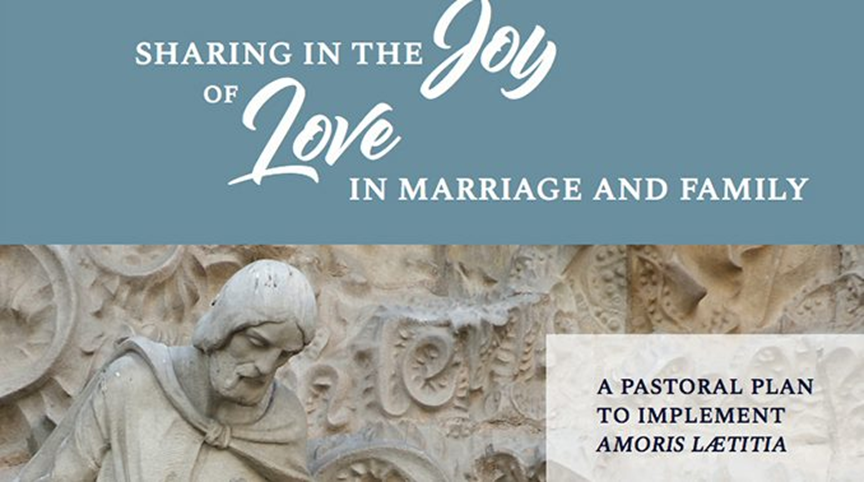 God help us all! - if this is an example of the propaganda blitz planned by the US's Bergoglio bishops to spread their new 'gospel', the infamous AL which now
God help us all! - if this is an example of the propaganda blitz planned by the US's Bergoglio bishops to spread their new 'gospel', the infamous AL which now
seems to be held up by the Bergoglio universe as Bergoglio's very own, all in one, Ten Commandments, Revelation and 'Word of God'-directly-communicated-to-him
by Whom he blasphemes as the 'Spirit'. Imagine attributing all that incoherence and manifestly erroneous teaching to the Holy Spirit, when clearly the spirit that
has been lording it in Casa Santa Marta and Bergoglio's brain is the very antithesis of holy!
A demur on the AOW document
implementing Amoris laetitia

March 5, 2018
A single sentence threatens to undercut the good presented in “Sharing in the Joy of Love”, the graphically-attractive, 55-page pastoral plan published by the Archdiocese of Washington (DC) to implement Pope Francis’s document Amoris laetitia.
The problem sentence reads as follows:
“Priests are called to respect the decisions made in conscience by individuals who act in good faith since no one can enter the soul of another and make that judgment for them.” SJL, p. 52.
This admonition can, of course, be appropriately applied in innumerable situations. But, if the sentence means that priests must “respect the decision” of divorced-and-civilly-remarried Catholics, living as though married to each other, to approach for holy Communion, and administer the Sacrament to them, then t
he admonition fails for violating Canon 915 and the Eucharistic discipline which that canon has always represented.
I say “if”, however, because whether that is what SJL calls for is not clear. The words “canon”, “law”, and “discipline”, for example, do not appear in SJL. Canon 915 is never mentioned — not attacked, mind, just never mentioned.
[But that's a very Bergoglian tactic: if you ignore something altogether (like the DUBIA, e.g.), then it does not exist, not for you anyway!]
What makes one fear, however, that the sentence might be intended to sway ministers of holy Communion toward administration of the Eucharist under gravely illicit conditions — besides the fact that ministers so inclined could easily invoke SJL’s phrasing here in support of precisely such administration — is that
the rationale offered for such a stance, namely, that “no one can enter the soul of another and make [a conscience] judgment for them”, is repeatedly put forth these days as if a would-be communicant’s conscience preempted a minister’s application of Canon 915.
But the claim that Canon 915 yields to the conclusions of personal conscience as reached by a Catholic approaching for holy Communion is, as I have pointed out many, many times, completely wrong. Canon 915, and the tradition upon which it stands, operate in the face of observable behavior and not personal conscience.
Civil marriage after divorce is observable behavior, behavior that is gravely contrary to Christ’s teaching on the permanence of marriage, to the Christian’s duty to avoid giving scandal, and to the Church’s law on reception of the sacraments.
In short, if encouraging ministers to give holy Communion to divorced-and-civilly-remarried Catholics is indeed what SJL intends by its wording here, then SJL is wrong;
even if such is the use that some ministers intend to make of this passage in SJL, they are using the ambiguous wording of this sentence to avoid the clear directives of canon law and sacramental discipline.
[Modificato da TERESA BENEDETTA 06/03/2018 07:28]